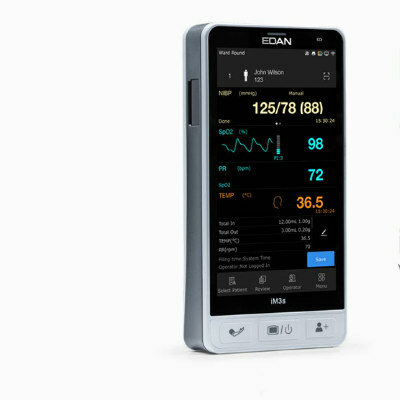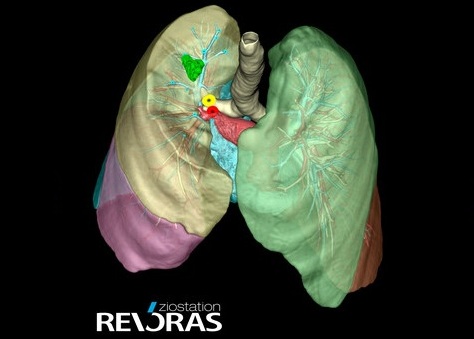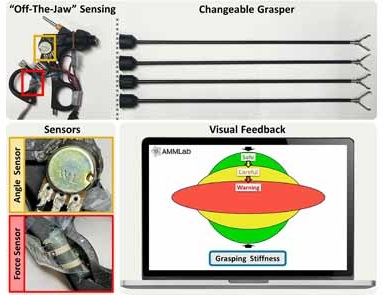AI-Enabled Operating Rooms Solution Helps Hospitals Maximize Utilization and Unlock Capacity
|
By HospiMedica International staff writers Posted on 10 May 2023 |

For healthcare organizations, optimizing operating room (OR) utilization during prime time hours is a complex challenge. Surgeons and clinics face difficulties in finding available slots for booking cases, while significant blocks of scheduled OR time remain unused during the day. Consequently, surgeons add cases after business hours or look for other facilities to meet their needs. This results in empty ORs, wasted capacity, dissatisfied surgeons, lost revenue, and high overtime expenses. Issues such as low block utilization, inefficient turnovers, and staffing challenges are often seen as major causes of poor prime time OR utilization. However, the underlying factors for optimal utilization include a systemic lack of access to OR time, minimal accountability for managing blocks, and limited visibility into crucial operational metrics.
Innovative hospitals and surgical centers are now addressing these underlying causes of underused capacity by successfully employing lean principles and advanced analytics. Enhanced prime time utilization rates allow patients to schedule surgeries sooner, surgical offices to have more predictable schedules with fewer add-ons or reschedules, and facilities to avoid expensive after-hours cases and make better-informed capital budgeting decisions regarding OR facility expansion. iQueue for Operating Rooms by LeanTaaS (Santa Clara, CA, USA) establishes a credible, fair, and transparent system for managing block and open time while maximizing the utilization of staff, equipment, and capital. The outcomes include 30-50 additional cases performed per OR per year, improved surgeon, patient, and staff satisfaction, increased prime time utilization, and higher surgical market share.
iQueue for Operating Rooms integrates machine learning with intelligent cloud-based tools that not only create open time but also enhance OR utilization and performance. It eliminates politics and ambiguity by emphasizing repurposable portions of time consistently abandoned, released, or left unused (i.e., "Collectable Time") by block owners, which can be removed without affecting the surgeon's practice. iQueue for Operating Rooms offers easy access to real-time data with comprehensive drill-downs, vivid visualizations, and prescriptive analytics. As a result, leadership is more confident, surgeons are more engaged, and the organization can engage in more objective discussions around performance metrics. Furthermore, iQueue for Operating Rooms digitizes the workflow, streamlines the scheduling process, and improves accuracy. The digital process results in fewer delays and higher satisfaction levels for patients, surgeons, clinics, and staff.
“iQueue is a far more scientific way of managing OR capacity and creating access to OR time, accountability for block time, and transparency into operating metrics,” said Dio Sumagaysay, Associate Chief Nursing Officer at Oregon Health & Science University. “The changes to our core processes for release and request, block rightsizing, and transparency into the metrics is exactly what we needed. This is the future of OR capacity management.”
Related Links:
LeanTaaS
Latest Health IT News
- Printable Molecule-Selective Nanoparticles Enable Mass Production of Wearable Biosensors
- Smartwatches Could Detect Congestive Heart Failure
- Versatile Smart Patch Combines Health Monitoring and Drug Delivery
- Machine Learning Model Improves Mortality Risk Prediction for Cardiac Surgery Patients
- Strategic Collaboration to Develop and Integrate Generative AI into Healthcare
- AI Predicts Pancreatic Cancer Three Years before Diagnosis from Patients’ Medical Records
- First Fully Autonomous Generative AI Personalized Medical Authorizations System Reduces Care Delay
- Electronic Health Records May Be Key to Improving Patient Care, Study Finds
- AI Trained for Specific Vocal Biomarkers Could Accurately Predict Coronary Artery Disease
Channels
Artificial Intelligence
view channel
Innovative Risk Score Predicts Heart Attack or Stroke in Kidney Transplant Candidates
Heart researchers have utilized an innovative risk assessment score to accurately predict whether patients being evaluated for kidney transplants are at risk for future major cardiac events, such as a... Read more
AI Algorithm Detects Early-Stage Metabolic-Associated Steatotic Liver Disease Using EHRs
Liver disease, which is treatable when detected early, often goes unnoticed until it reaches advanced stages. Metabolic-associated steatotic liver disease (MASLD), the most prevalent form of liver disease,... Read moreCritical Care
view channel
First-Of-Its-Kind AI-Powered Probability Scoring System Assesses Heart Failure with Preserved Ejection Fraction
Heart failure with preserved ejection fraction (HFpEF) is one of the most difficult types of heart failure to diagnose due to the intricate interaction between various clinical and echocardiographic factors.... Read more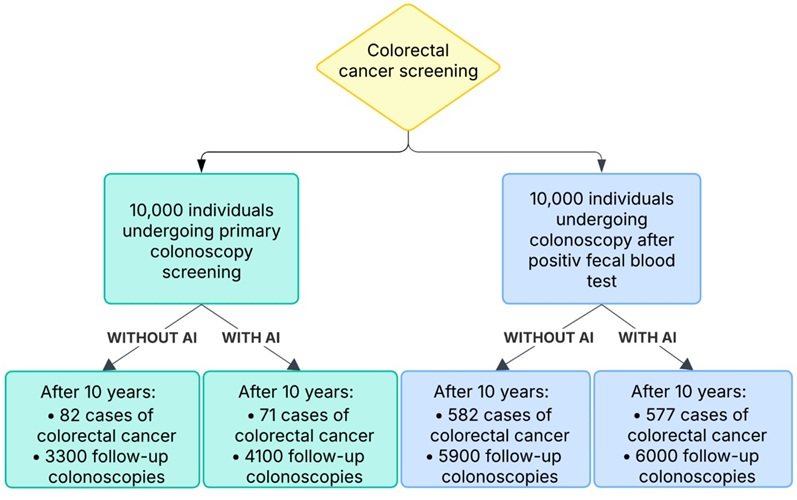
AI-Assisted Colonoscopy Detects More Polyps but Has Modest Effect on Cancer Risk
Colorectal cancer is among the most common cancers in the Western world. Currently, screening is performed using a test that detects blood in the stool (FIT screening). If the test identifies a certain... Read more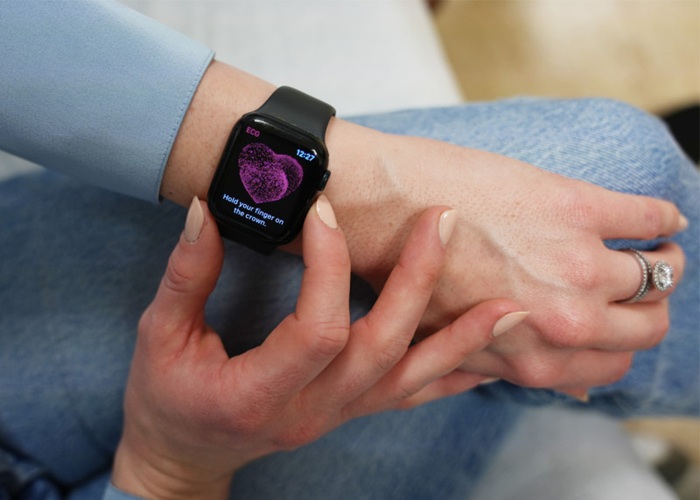
Wearables Could Reduce Need for Continuous Blood Thinners in Patients with Atrial Fibrillation
Atrial fibrillation (AFib) is the most prevalent heart arrhythmia, affecting over 5 million individuals in the United States, with projections suggesting that number could rise to 12.1 million by 2030.... Read moreSurgical Techniques
view channel
Tiny Robotic Tools Powered by Magnetic Fields to Enable Minimally Invasive Brain Surgery
Over the past few decades, there has been a significant surge in the development of robotic tools designed to facilitate minimally invasive surgeries, improving recovery times and patient outcomes.... Read more
Magnetic Tweezers Make Robotic Surgery Safer and More Precise
Microrobots are small-scale robots designed using nanotechnology, and they hold significant potential for various medical applications, including surgery, targeted drug delivery, and biopsy.... Read morePatient Care
view channel
Portable Biosensor Platform to Reduce Hospital-Acquired Infections
Approximately 4 million patients in the European Union acquire healthcare-associated infections (HAIs) or nosocomial infections each year, with around 37,000 deaths directly resulting from these infections,... Read moreFirst-Of-Its-Kind Portable Germicidal Light Technology Disinfects High-Touch Clinical Surfaces in Seconds
Reducing healthcare-acquired infections (HAIs) remains a pressing issue within global healthcare systems. In the United States alone, 1.7 million patients contract HAIs annually, leading to approximately... Read more
Surgical Capacity Optimization Solution Helps Hospitals Boost OR Utilization
An innovative solution has the capability to transform surgical capacity utilization by targeting the root cause of surgical block time inefficiencies. Fujitsu Limited’s (Tokyo, Japan) Surgical Capacity... Read more
Game-Changing Innovation in Surgical Instrument Sterilization Significantly Improves OR Throughput
A groundbreaking innovation enables hospitals to significantly improve instrument processing time and throughput in operating rooms (ORs) and sterile processing departments. Turbett Surgical, Inc.... Read morePoint of Care
view channel
Handheld, Sound-Based Diagnostic System Delivers Bedside Blood Test Results in An Hour
Patients who go to a doctor for a blood test often have to contend with a needle and syringe, followed by a long wait—sometimes hours or even days—for lab results. Scientists have been working hard to... Read more
Smartphone-Enabled, Paper-Based Quantitative Diagnostic Platform Transforms POC Testing
Point-of-care diagnostics are crucial for public health, offering rapid, on-site testing that enables prompt diagnosis and treatment. This is especially valuable in remote or underserved regions where... Read moreBusiness
view channel
Expanded Collaboration to Transform OR Technology Through AI and Automation
The expansion of an existing collaboration between three leading companies aims to develop artificial intelligence (AI)-driven solutions for smart operating rooms with sophisticated monitoring and automation.... Read more










